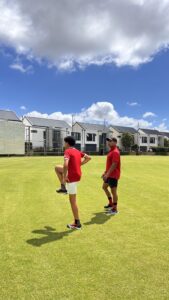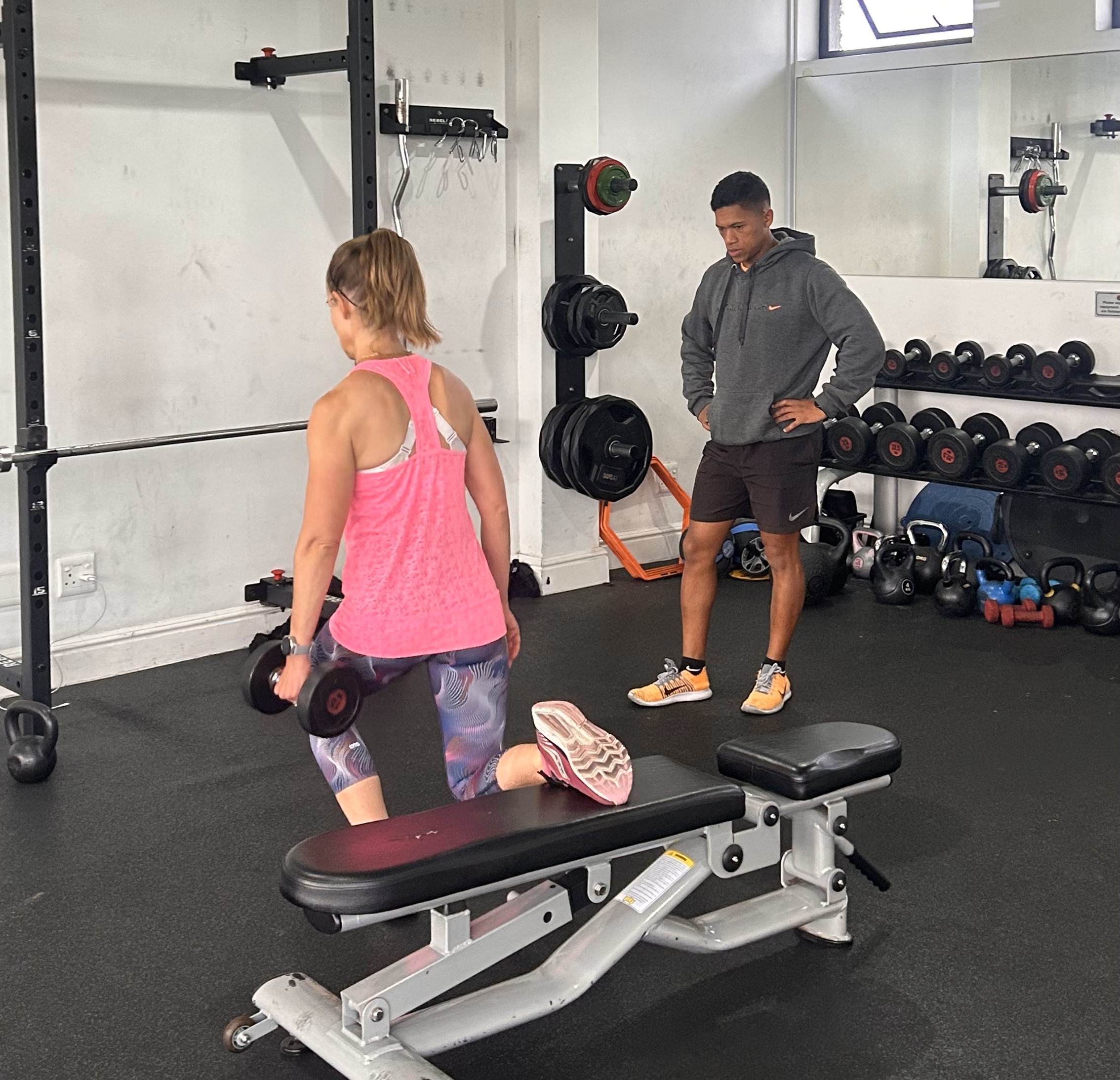Introduction
Our latest student story features Craig Solomon, a strength and conditioning coach and current student on the BSc in Strength and Conditioning. Craig provides insight into his coaching approach, lessons he has learned and his dreams for the future.
Driven by Growth
Craig comes from a background in athletics, cricket, rugby and swimming and is passionate about strength and conditioning. “I’ve seen firsthand how the right training can push you beyond your limits, whether that’s setting personal bests or just being able to chase after your nephew without pulling a muscle.” he shared.
Having worked with both athletes and the general population, Craig outlines his approach “stems down from a number of people in the industry such as Michale Boyle, Nick Winkleman, Nic Gill, David Gray among many others, and that is ‘KISS’ – Keep It Simple Stupid! At the end of the day, we’re all just trying to be a little better than we were yesterday,” he said.
Coaching Approach
Craig is self-employed and works across a variety of sports and teams in soccer, cricket, rugby and individual sports. “My day starts at 5:30am and ends at 7pm attending teams, position-specific players form various sporting codes, individual sporting athletes and the ones who really cover the bills, the general population,” he shared. “My expectations from these teams may vary in team goals but all sit under one umbrella and that is to reduce the risk of injury and improve performance through strength and conditioning.”
“My daily mission is to improve and achieve success with those I work with every day, whether it be athletes, the wider management team, medical professionals, or other coaches.”
Tailoring his approach to meet the needs of different individuals, Craig emphasises the importance of listening, assessing, and adapting. He summarises his approach below:
- “Understand the Goal: Every individual or team has a unique aim – it could be enhancing performance, improving health, or just feeling stronger. I align training with those specific outcomes.
- Assess the Starting Point: I always evaluate where someone is right now in terms of fitness level, movement patterns, and any limitations or strengths. For teams, I also factor in group dynamics and shared objectives.
- Customise the Programme: Athletes might need sport-specific drills, while general fitness clients often benefit from versatile, functional movements. I adjust intensity, volume, and progression to suit their needs, schedules, and equipment availability.
- Adaptability and Feedback: No plan is set in stone. I regularly check in and adjust based on progress, feedback, and how someone feels. If something’s not working, we pivot until it does.
- Motivate and Educate: I adapt communication styles to resonate with each client or team, ensuring they understand why we’re doing what we’re doing and feel motivated to keep going.”
 Studying with Setanta
Studying with Setanta
“I always wanted and still want to gain a deeper understanding of the science behind training, how to optimise performance, reduce injury risk, and create programmes that make a difference for both athletes and the general population,” he shared.
“Setanta offers something no other sports industry could offer me, and that is to keep my full-time job and study a course in the desired field. The courses also offer a perfect blend of theory and hands-on learning, equipping me with tools to better serve my clients and athletes. Additionally, I was drawn to the global perspective and the opportunity to learn from leading experts in the industry,” Craig shared.
Standout modules for Craig have been injury rehabilitation and sports psychology where the knowledge he gained has enhanced his “ability to tailor programmes that address the full spectrum of a client’s needs, making their journey both effective and sustainable.”
Lessons Learned
Craig outlines the lessons he has learned throughout his career.
- “Read the room: Get to know your clients and athletes by paying attention to pointers that might hinder activity or adjust the planned programme. Educate yourself to adopt the correct approach to better manage these somewhat uncontrollable factors.
- Stick to your values: Make a list of values that you believe in, and don’t change them unless it’s for the better.
- Do what you love. Do what you love and love what you do!”
He also offers practical advice for those starting their journey in strength and conditioning:
- “Start with people, not programmes: The most important part of coaching is understanding and connecting with people.
- Focus on movement quality first: Focus on teaching and reinforcing proper movement patterns before chasing numbers or performance metrics.
- Be a lifelong student: The S&C industry is always evolving, so stay curious and keep learning.
- Be Patient: The S&C industry is rewarding, but it takes time to build experience, trust, and a reputation. Keep showing up, stay humble, and always focus on making a positive impact.”


Leave A Comment